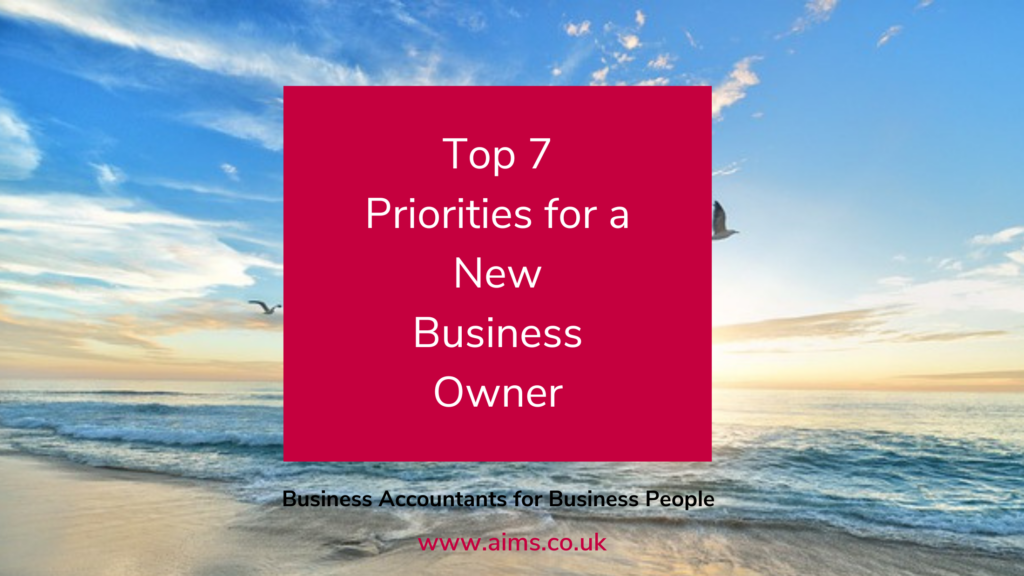| As a new business owner, it’s important to prioritize financial management and planning in order to ensure the long-term success of your business. While some start-ups or new business owners will start off using an Excel spreadsheet, it’s a good idea to talk to an accountant about your priorities. AIMS accountants work with SMEs all over the UK and we’d love to help you make your business a success.
Priorities for a new business owner
Here are some key financial priorities for a new business owner:
- Establish a budget: A budget will help you track your expenses and manage your cash flow effectively. It will also help you make informed decisions about your spending priorities.
- Manage your cash flow: Cash flow is critical for the survival of any business. It’s important to keep track of your incoming and outgoing cash to ensure that you have enough to pay your bills and expenses on time.
- Maintain accurate financial records: Accurate financial records will help you track your business’s performance and make informed decisions about its future. You should keep track of your income, expenses, assets, and liabilities
- Understand your tax obligations: You’ll need to pay taxes on your business income, so it’s important to understand your tax obligations and plan for them accordingly. You may want to consult with a tax professional to ensure that you’re meeting all of your tax obligations.
- Secure funding: Many new businesses require funding to get off the ground. You may need to seek out investors, take out loans, or explore other funding options to ensure that you have the capital you need to start and grow your business.
- Monitor your financial performance: It’s important to regularly review your financial statements and key performance indicators (KPIs) to track your business’s performance over time. This will help you identify areas for improvement and make informed decisions about your business’s future.
- Plan for growth: As your business grows, you may need to invest in additional resources, hire new employees, or expand your operations. It’s important to plan for these expenses and ensure that you have the resources you need to support your growth.
Get into good financial habits early on and you’ll never regret it – your long-term success will depend on good financial management and planning.
We work with SMEs all over the UK and our accountants are business owners too, just like you. We’d love to work with you. You can find your nearest AIMS accountant here: https://www.aims.co.uk/find-your-local-aims-accountant/
|
